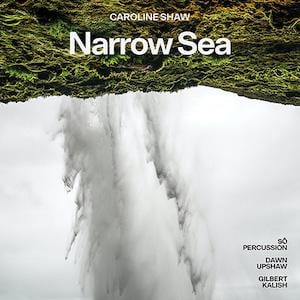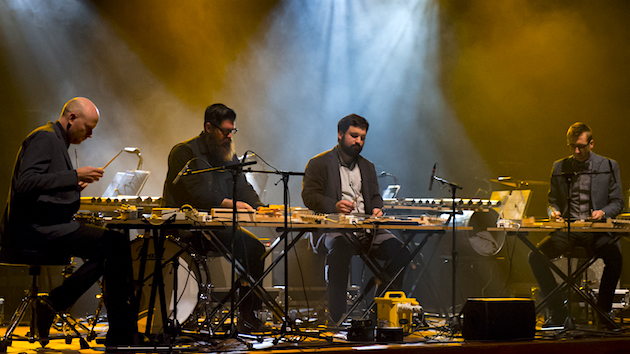
While waiting out the COVID-19-forced halt to live music, multitalented Caroline Shaw slowed down the pace of her composing — or so she said in an interview with CapRadio in Sacramento. But there is always stuff in reserve to put out, and so out comes an EP-length CD of Shaw compositions for Sō Percussion called Narrow Sea (Nonesuch), featuring two top-rank performers familiar to longtime Nonesuch consumers — soprano Dawn Upshaw and pianist Gilbert Kalish.

Narrow Sea (2017) is a five-part song cycle in which Shaw aims to compose new melodies to the words of selected texts from a book of shape-note hymns called The Sacred Harp. The title comes from the words of Part 2 of the cycle, “Death, like a narrow sea, divides/This heavenly land from ours.” Not exactly a cheery thought in pandemic times.
It may be a thankless task to rewrite these tunes, but not a blasphemous one, for that is in the folk tradition of passing down songs from generation to generation, with each generation adding its own spins and changes to the material. John Corigliano did something similar in writing new music to Bob Dylan lyrics in his song cycle Mr. Tambourine Man. But as in the case of Corigliano’s work, also a song cycle, it’s very difficult to pry the original tunes out of one’s mind as you listen.
The most indelible song is “Wayfaring Stranger,” whose haunting minor-key tune was omnipresent during the mid-20th-century folk revival via the likes of Burl Ives and the Limeliters, and later on, Johnny Cash and Emmylou Harris, among many others. Shaw tries her hand at resetting its lyrics not once but twice in Parts 1 and 5, and while she comes up with pleasant tunes, they just don’t have the emotional resonance of the original — for me at least.

That said, Shaw’s settings usually deploy Sō Percussion sparingly and with some humor, with tick-tock sounds in Parts 1 and 5, electronics introduced slyly and in fragments along with humming in Part 2, a piano played and strummed by five participants like a zither in descending patterns in Part 3, eventually culminating in freeform chaos. The gentle sound of water pouring into a glass in Part 4 seems like a subtle dig at the lyrics mentioning the River Jordan’s “stormy banks.” Upshaw sings with the impassioned commitment that she puts into everything she does.
The last song leads with barely a pause into an earlier piece that Shaw composed for Sō Percussion, Taxidermy (2012, no idea why this title was chosen), which uses the same combination of flower pots, marimba, and vibraphones. Even sparser in texture than Narrow Sea, Taxidermy eventually generates a mild groove and culminates in a cascade of spoken voices proclaiming “the detail of the pattern is movement” in fragments spread across the stereo speakers. It comes off as a harmless dada epilogue to the mini-album.




